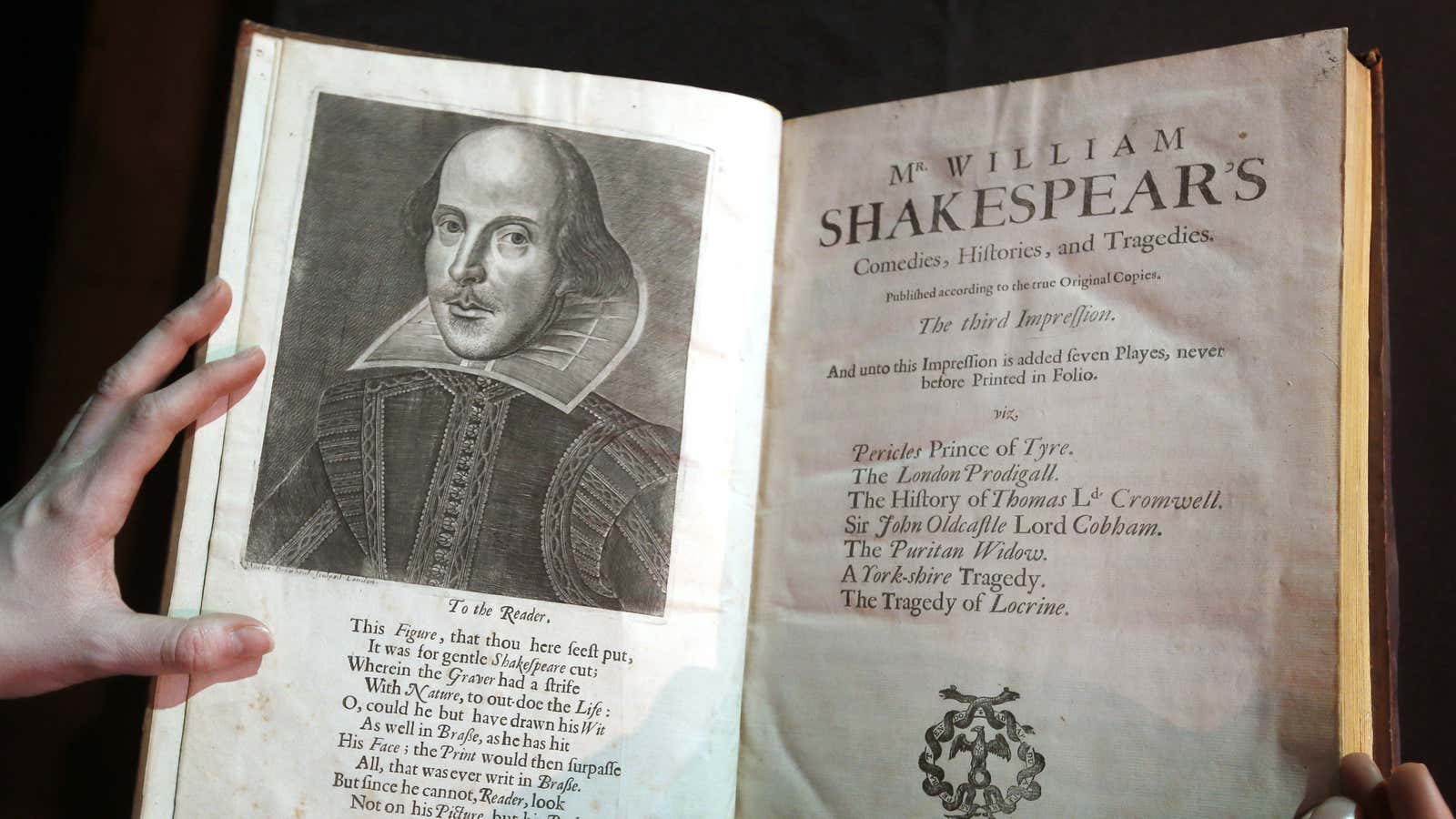No writer ever penned a masterpiece without first devoting many hours to reading, and William Shakespeare is no exception. As this weekend marks 400 years since his death, many will once again be returning to their Shakespeare collections to read one of his timeless plays. But it’s also worth remembering the works that Shakespeare read, and the books that lay the groundwork for the Bard’s literary genius.
Though no official records of Shakespeare’s schooling survived, it’s considered “almost certain” that Shakespeare attended grammar school in Stratford-upon-Avon until he was at least 14 years old.
The English philosopher Thomas Spencer Baynes, a professor at the University of St. Andrews in the 19th century, carefully researched the Stratford school curriculum during his time. An excerpt from his article, “What Shakespeare Learnt at School,” can be found online and details much of what Shakespeare is thought to have studied as a child.
Many of these works are still considered classics today, including Aesop’s Fables. Shakespeare and his classmates would also have spent a great deal of time studying the Bible.
A great deal of Shakespeare’s presumed reading focused on ancient Roman writers who have continued to stand the test of time, including Cato the Elder, Cicero, Ovid, Livy, Virgil, Horace, Juvenal, Persius, Seneca, Plautus, and Lucan.
Other authors Shakespeare is thought to have read in school, such as French theologian Sebastian Castellio and Italian humanist Baptista Spagnuoli Mantuanus, are considered somewhat more obscure today.
In terms of his reading outside of the classroom, scholars have pointed to signs that Shakespeare was inspired by and borrowed from numerous other canonical works, including Edmund Spenser’s Faerie Queen, Chaucer, and Sir Philip Sidney’s Arcadia. The playwright is also thought to have been influenced by John Gower, an English poet who was a friend of Chaucer’s, but is less well remembered today.
Meanwhile, Plutarch’s Lives of the most noble Grecians and Romans, as translated by Sir Thomas North, has been widely studied in relation to Shakespeare, and several of the Bard’s plays are thought to have drawn from this work.
Earlier this week, Jonathan Bate, a Shakespeare scholar and professor of English Literature at the University of Oxford, wrote in The Guardian that he believed Plutarch’s Lives would have been one of the playwright’s three favorite books.
He argued that another would have been The Essays of Michel de Montaigne, translated by John Florio, for its meditations on Roman Stoical philosophy. And finally, Bate believed Shakespeare’s third and foremost favorite would have been Ovid’s Metamorphoses, as translated by Arthur Golding. A Midsummer Night’s Dream, The Winter’s Tale, and The Tempest all contain references to Ovid’s work, writes Bates, and the playwright was so attached to the poet that he brought a copy of Metamorphoses on stage for his first tragedy, Titus Andronicus.
Certainly Ovid’s Metamorphoses is considered one of the greatest literary works of all time and is widely thought to be worth reading for its own sake. But for devoted fans of Shakespeare, it couldn’t hurt to peek at Ovid’s epic poem and get a sense of the writing that inspired Shakespeare own drama.
